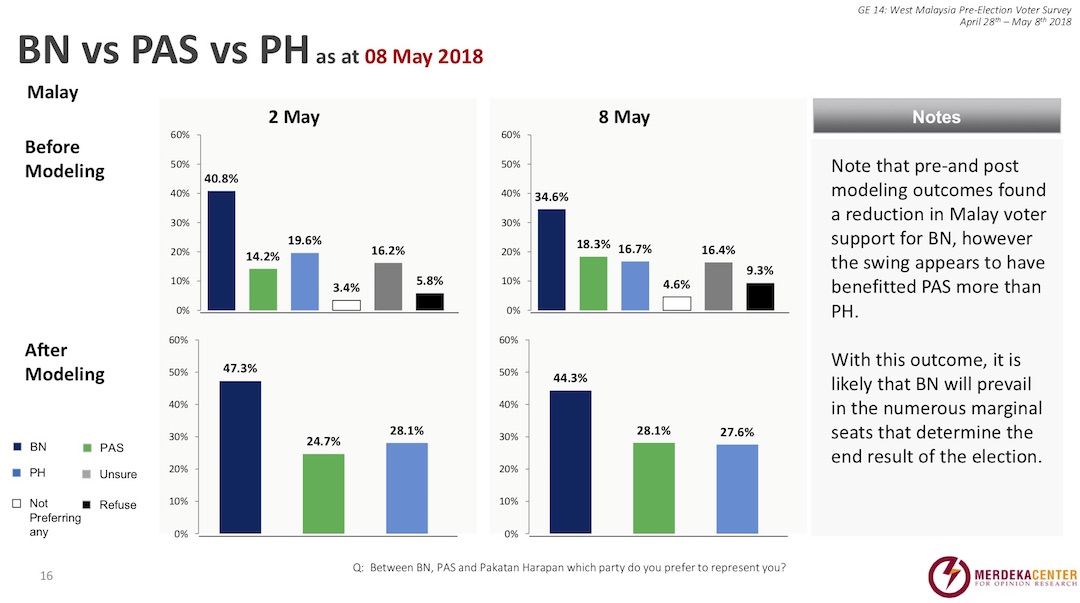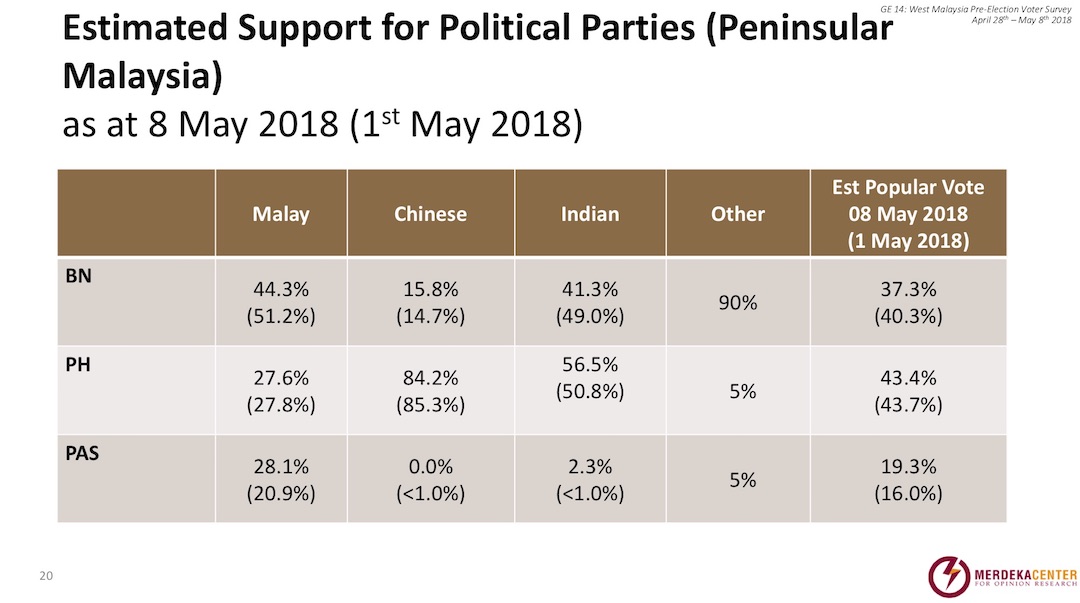KUALA LUMPUR, June 29 — The results of the 14th general election (GE14) left egg on pollsters and pundits’ faces as most failed to foresee Pakatan Harapan’s (PH) unlikely victory, instead predicting that Barisan Nasional (BN) would cling on with a reduced majority.
Independent pollster Merdeka Center’s Ibrahim Suffian admitted that the outcome both stumped him and bruised his ego.
“I could not even meet my friends out of shame,” he joked.
Speaking at a post-GE14 analysis by the International Islamic University Malaysia’s (IIUM) Electoral Studies Research Unit yesterday, Ibrahim gave several reasons why his prediction was off the mark.
Top of the list was the reluctance of a significant portion of survey respondents to share their sentiments, particularly among the Malays.
Nearly one in every three Malay respondents had declined to state which coalition they would be voting for in the general election, Ibrahim said.
This problem was also compounded by an inference that proved to be incorrect.
“Our model assumed those undecided would give their support to Barisan Nasional,” he said, explaining that the model was previously reliable in producing accurate predictions of the popular vote, including in the 2016 Kuala Kangsar by-election.
Ibrahim said his centre had tracked public sentiment over the 10-day campaigning period, and prior to polling day, charted expressed support for BN among Malays in Peninsular Malaysia at 34.6 per cent, compared to PH’s 16.7 per cent.
However, this was still thrown off by 16.4 per cent of respondents who said they remained undecided, 9.3 per cent who refused to answer, and 4.6 per cent who abstained.
Adjusted using Merdeka Center’s prediction model, the pollster had expected that 44.3 per cent of the Malay community’s vote to go to BN, compared to PH’s 27.6 per cent.
 “We overcompensated for BN by a huge margin, around 10 percentage points,” he said.
“We overcompensated for BN by a huge margin, around 10 percentage points,” he said.
Ibrahim said the reluctance of the public to speak about their political support is a cultural issue among Malaysians.
“A lot of people don’t want to talk. They can talk about the issues, but when it comes to their choice, they don’t want to talk,” he added.
In its final outcome projections on the eve of polling, Merdeka Center had predicted that PH was likely to win 43.7 per cent of the popular vote versus BN’s 40.3 per cent.
Despite predicting that BN would again lose the popular vote, Merdeka Center still expected the coalition to win enough seats to remain in power courtesy of the country’s first-past-the-post system.


Ibrahim’s sentiment was shared by the IIUM Electoral Studies Research Unit’s Prof Datuk Seri Syed Arabi Idid, who has also tracked the popular vote for decades.
Despite Syed Arabi’s survey showing BN’s popular support stagnating at around 37 per cent for the last four years, down from a 48 per cent in 2013 and 42 per cent in 2014, he also did not predict a PH win.
“It was very risky, but they did the redelineation. We thought with the redelineation, it would be at best a hung Parliament,” the professor said.
The Election Commission had rammed through a redrawing of electoral boundaries just months ahead of GE14, inviting allegations that this was designed to benefit BN then.
Suspecting elements of gerrymandering, electoral reform group Bersih 2.0 and voters tried unsuccessfully to contest this via the courts.
Syed Arabi also said that the campaigning period for GE14 was odd, since voters were still undecided then, compared to previous elections when the public would have firmed up their choices even before Nomination Day.
Ibrahim and Syed Arabi’s remarks were consistent with Malay Mail’s straw poll in states such as Johor and Kedah, where Malay voters have largely been equivocal, choosing instead to adopt a “wait and see” approach, or insisting that their votes are secret.
This comes even as more and more Malays were seen attending PH’s ceramah, with many unabashedly wearing its parties’ tees and the mask of PH chairman Tun Dr Mahathir Mohamad.
Among the predictions, Invoke Malaysia and Ilham Centre were the most confident about a PH win, predicting a sweep of 111 and 100 seats respectively.
PH ended up winning 113 seats, enough to form a simple majority and hand BN its only ever defeat in a general election.



















